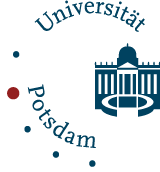Research Fields
Description of Christianity
With the system theory, a new paradigm has emerged which claims to define stable communications among which religion is counted as self-referential figures. Though this approach was adopted by theology and religious studies in theory, it was rarely applied in practice. In the book project “God is Code” can be found a creative implementation of the system theory on religious objects. It constitutes an attempt to reformulate the classical Christian tractates (religion, god, redemption, angels, sin, church, and faith) to demonstrate the grammar of the codes, formulas, programs and media in which religion operates. This research approach aims to demonstrate basic structures. Through system-theoretical reformulation Christianity is shown to be a functional equivalent for the solution of generic religious problems, which then creates specific problems (such as incarnation and predestination).
Lower Transcendence: Angels and Intermediary Beings
Particularly the monotheistic religions find themselves confronted with the problem that entities below the deity (angels, demons, ions, spirits, multitudes) are persistently being conjured up that they are neither divine nor human. This can be seen in the renaissance of angels, especially in times when the bonding force of the churches is in decline. There is a dearth of theoretical reflection on this question. Particularly in the popular devotion intermediary beings serve all kinds of wild functions such as protecting from harm, healing, and oracles. Instead of interpreting this as a syndrome of decay, our research work will demonstrate why lower transcendences are important for the maintenance of high transcendence. An inter-church investigation will help verify this conjecture. First investigations on angelology have been presented in miscellaneous articles and on a multimedia CD-ROM. As a sub-project, regional investigations e.g. on angels in Berlin and angels in churches in Berlin and Brandenburg churches are planned.
